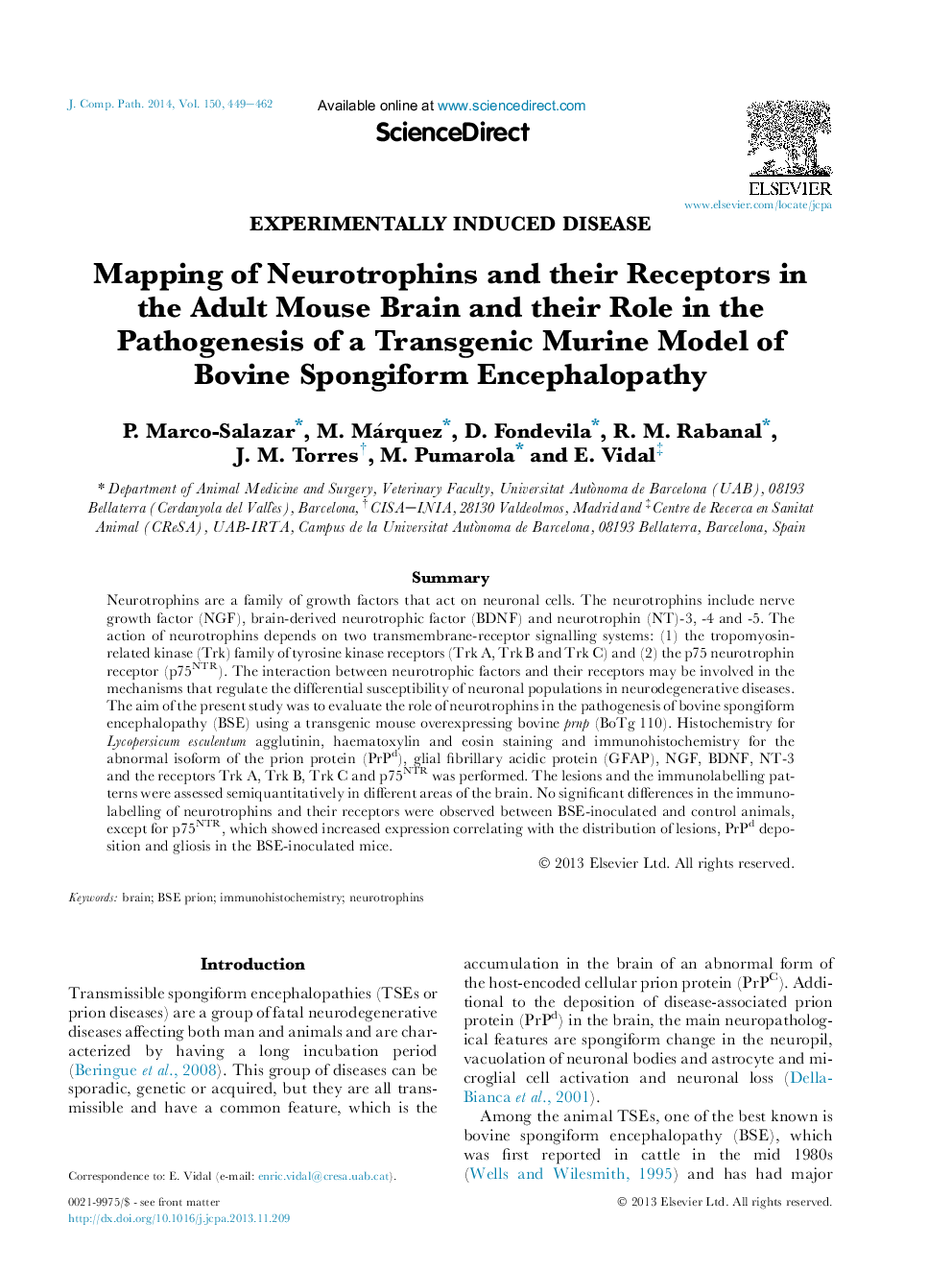| Article ID | Journal | Published Year | Pages | File Type |
|---|---|---|---|---|
| 2437387 | Journal of Comparative Pathology | 2014 | 14 Pages |
SummaryNeurotrophins are a family of growth factors that act on neuronal cells. The neurotrophins include nerve growth factor (NGF), brain-derived neurotrophic factor (BDNF) and neurotrophin (NT)-3, -4 and -5. The action of neurotrophins depends on two transmembrane-receptor signalling systems: (1) the tropomyosin-related kinase (Trk) family of tyrosine kinase receptors (Trk A, Trk B and Trk C) and (2) the p75 neurotrophin receptor (p75NTR). The interaction between neurotrophic factors and their receptors may be involved in the mechanisms that regulate the differential susceptibility of neuronal populations in neurodegenerative diseases. The aim of the present study was to evaluate the role of neurotrophins in the pathogenesis of bovine spongiform encephalopathy (BSE) using a transgenic mouse overexpressing bovine prnp (BoTg 110). Histochemistry for Lycopersicum esculentum agglutinin, haematoxylin and eosin staining and immunohistochemistry for the abnormal isoform of the prion protein (PrPd), glial fibrillary acidic protein (GFAP), NGF, BDNF, NT-3 and the receptors Trk A, Trk B, Trk C and p75NTR was performed. The lesions and the immunolabelling patterns were assessed semiquantitatively in different areas of the brain. No significant differences in the immunolabelling of neurotrophins and their receptors were observed between BSE-inoculated and control animals, except for p75NTR, which showed increased expression correlating with the distribution of lesions, PrPd deposition and gliosis in the BSE-inoculated mice.
